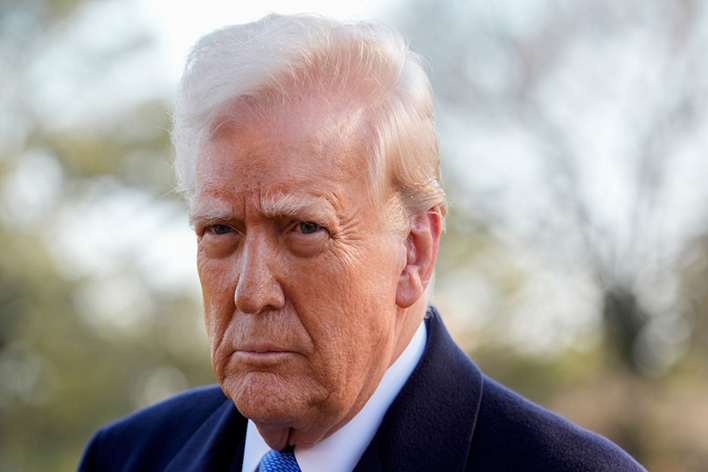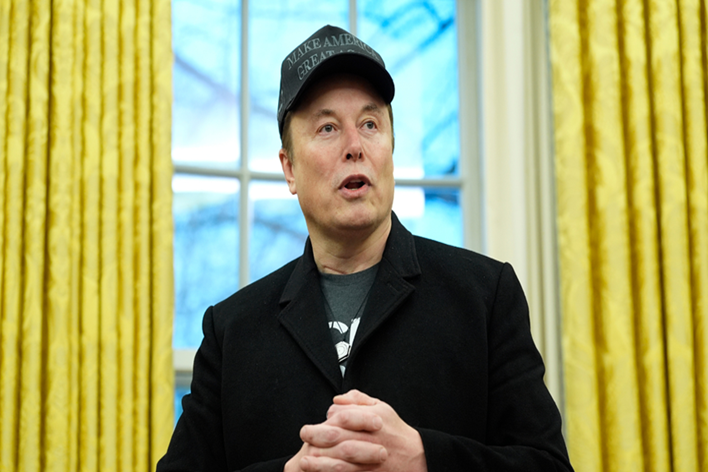
News Gujarat
On Wednesday, former President Donald Trump declared a 25% tariff on imported cars and auto parts, a policy set to take effect on April 3. The measure applies to both fully assembled vehicles entering the US and components used in American auto manufacturing. While aimed at strengthening domestic car production, the tariffs are expected to drive up prices across the automobile sector.
“This will benefit companies that manufacture within the United States,” Trump stated at the White House. However, industry experts warn that the tariffs could disrupt global supply chains and significantly impact consumers and manufacturers alike.
Impact on the Auto Industry
The modern automotive sector relies heavily on an intricate global supply chain, with parts and vehicles frequently assembled in multiple countries. Trade agreements over the decades have allowed seamless cross-border production, particularly in North America. Currently, about half of all cars sold in the US are imported, and roughly 60% of components in American-assembled vehicles come from international suppliers.
The tariffs will affect all major car brands, including US-based manufacturers such as General Motors and Ford, both of which assemble vehicles in Canada and Mexico. With supply chains fine-tuned for cost efficiency, the additional tariffs could increase the price of new cars and create challenges for automakers adapting to the sudden policy change.
Market Reaction and Economic Consequences
Following the tariff announcement, stock markets reacted negatively, with shares of leading automakers experiencing significant declines. General Motors’ stock plummeted nearly 7%, while Ford and Stellantis saw decreases of over 4%. Tesla, which depends less on imported parts, registered a smaller 1% drop.
While Trump argues that the tariffs will incentivize companies to move production to the US, industry analysts caution that such a transition requires years and substantial financial investment. Constructing new manufacturing facilities is a long-term endeavor, making an immediate shift unrealistic.
Additionally, the tariffs are projected to exacerbate inflation in the US automotive market, where prices have already been climbing. Analysts estimate that American-made cars could see price increases of up to $3,000, while vehicles manufactured in Canada and Mexico might rise by as much as $6,000. Automakers may respond by adjusting prices across their entire product lines, making new vehicles less affordable for many consumers.
International Repercussions
The tariff decision is expected to strain relations with key US trade partners, particularly those in Europe and Asia. Automakers from Germany, Japan, and South Korea, which export significant numbers of vehicles to the US, will face considerable challenges. European officials, who have long voiced concerns over trade imbalances with the US, may consider retaliatory measures or seek to renegotiate trade agreements with Washington.
Mercedes-Benz CEO Ola Källenius acknowledged the potential business disruptions, stating, “Tariffs will undoubtedly add to operational costs.” Despite this, the company plans to maintain its investments in US manufacturing.
Meanwhile, some foreign automakers have already taken steps to expand their presence in the US. Hyundai recently announced a $21 billion investment in its American operations, including the construction of a new steel plant in Louisiana to reduce reliance on imported materials. Similarly, Mercedes-Benz and other manufacturers are exploring the possibility of increasing US production capacity.
As the auto industry grapples with the repercussions of these tariffs, both consumers and manufacturers will face new challenges in adapting to the evolving economic landscape.
Stay informed with the latest international news, trends, and updates at newsgujarat.in!




